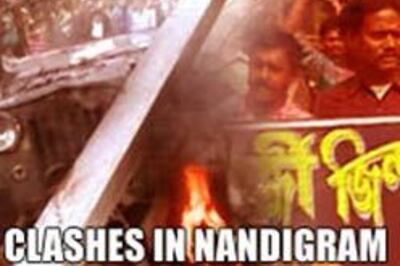
views
THIRUVANANTHAPURAM: The ‘Symposium on Tourism and Livelihood’ came to a close on Thursday taking stock of the Responsible Tourism (RT) movement in the State and with the promise to scale up the movement in the second phase. Dr Narayanan, a development professor at IIT Mumbai, evaluated the four years of the RT movement in the State. He found that there were differential outcomes. Kumarakom was a spectacular success but in the other three ‘laboratories’ - Kovalam, Kumily and Wayanad - the achievements fell way below expectations.Narayanan, however, said the problems that plagued RT in the State reflected the larger trends in the Kerala economy like high input cost and competition from neighbouring states. He said smallness is the State’s advantage. Smallness referred to the small hotels and resorts that made up the industry and the minor production units that made up the local sources. International expert Harold Goodwin, however, said the number of small units, though a novelty and a strength, could make the implementation of RT difficult. "Awareness should be created among a large number,’’ Goodwin said.Narayanan said the Tourism Department’s 'over enthusiasm' had led to the initiation of ‘’so many things’’. "Can we reduce these activities,’’ he asked. Goodwin also spoke about fixing a finite number of priorities. Narayanan also wanted to know whether a convergence of panchayat funds - ones earmarked for agriculture, animal husbandry and welfare, all of which form part of the RT initiative - be converged. Narayanan was also skeptical about the role of DTPC’s. ‘’We are not sure whether they owned the programme. Was there something irresponsible in their functioning,’’ he asked.The RT initiative in Kumarakom was a big success. Narayanan said its success was ‘’majorly because of the political clout in Kumarakom’’. He was referring to the immense influence wielded by then panchayat president G C Damodaran and the RT coordinator in the area, Rupesh. He said the need was to create a system that is not dependant on the efforts of certain individuals.During a group discussion that followed, former and current panchayat presidents called for more financial and regulatory powers for panchayats. The present Kumarakom panchayat president, Dhanya, said that backwater tourism was the biggest source of pollution in the panchayat but the reality was that the panchayat had no control over the activities of houseboats. Poor funds have hobbled even efforts at effective waste management. The Munnar panchayat president said the panchayat was not able to purchase a second vehicle to transport waste because of financial limitations.The symposium also threw up the idea that RT should be promoted just the way other tourism products are marketed. It was felt there was a general impression about tourism that was negative. Responsible Kerala campaign should be an attempt to change perceptions. The symposium was jointly organised by the Tourism Department, Kerala Institute of Travel and Tourism Studies and International Centre for Responsible Tourism.



















Comments
0 comment